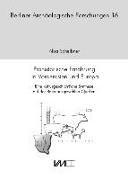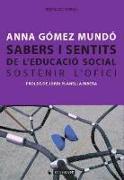- Start
- Prähistorische Ernährung in Vorderasien und Europa
Prähistorische Ernährung in Vorderasien und Europa
Angebote / Angebote:
Die Studie befasst sich anhand direkter [Isotopenanalysen und Rückstandsanalysen, Pathologie] und indirekter Quellen [Archäozoologie und Archäobotanik] mit Unterschieden der Ernährungsweise vom Jungpaläolithikum bis zur Spätbronzezeit, wobei der Fokus - unterteilt in neun Großräume - auf Isotopendaten liegt. Das erste Kapitel widmet sich Methodik, Forschungsgeschichte, Ernährungslehre, Nahrungswahl und Quellenkritik. Der zweite Teil beleuchtet die Entwicklung der menschlichen Ernährung vom Miozän bis zum Mittelpleistozän, der dritte die Nahrungszubereitung mit den Aspekten Kochmethoden, Fermentation, Milchverzehr, Bevorratung und Würze. Im vierten Abschnitt erfolgt eine diachrone Auswertung für Jungpaläolithikum, Mesolithikum, Neolithikum / Chalkolithikum und Bronzezeit, die - regional und zeitlich verschieden - von Anfang an die Nutzung auch aquatischer Produkte und seit dem Neolithikum eine sinkende Wichtigkeit von Wild sowie Knochenmark und Knochenfett zugunsten homogenerer Nahrung auf der Basis von Ackerbau und Viehhaltung ergibt. Von den vermehrt seit dem Neolithikum auftretenden pathologischen Markern ist vor allem der Kariesanstieg auf das veränderte Eßverhalten zurückzuführen.
This study deals with differences of nutrition from the Late Palaeolithic to the Late Bronze Age on the basis of direct [isotope and residue analyses, pathology] and indirect [archaeozoology and archaeobotany] evidence with a focus on isotopic data - differentiated by nine major regions. The first chapter is dedicated to methods, history of research, dietetics, food choice, and source criticism. The second part illustrates the development of human nutrition from the Miocene to the Middle Pleistocene, the third one the preparation of food under the aspects of cooking method, fermentation, consumption of milk, storing, and seasoning. In the fourth section a diachronic evaluation is made for the Late Palaeolithic, Mesolithic, Neolithic / Eneolithic and Bronze Age which reveals the - regionally and temporarily different - use also of aquatic products from an early date and, since the Neolithic, a decreasing importance of game and both bone marrow and bone fat in favour of a more homogeneous diet based on agriculture and husbandry. Of the pathological markers increasingly attested from the Neolithic onwards the gain in caries in particular was owed to the changing eating behaviour.
Libri-Titel folgt in ca. 2 Arbeitstagen


